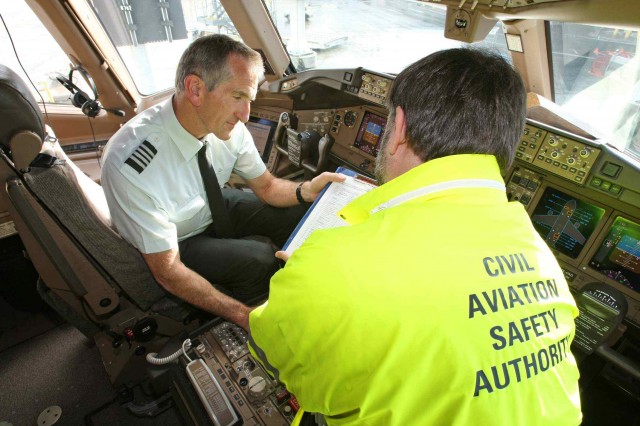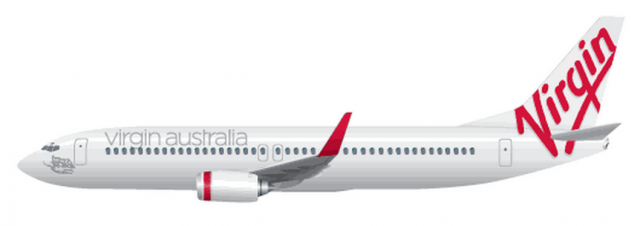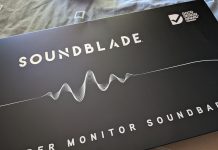
When travelling on aircraft around the world, you are required to turn off your portable electronic devices during take off and landing; while you can use them again after an aircraft has achieved cruising altitude, the period of not being able to use the devices between take-off and landing has frustrated a large number of air travellers. Now a new recommendation by a panel in the US, could see the governing body for flight regulations in the USA – the Federal Aviation Authority (FAA) – relax those standards to allow for use of devices for the entire duration of the flight.
FAA
The recommendation which was made by a 28-member FAA advisory committee, was supposed to reach the FAA on Monday, but has possibly been held up by the current government shutdown in the USA at the moment. When the recommendation reaches the FAA it will still have to be considered by the regulator before being approved, so there is no definite go-ahead for the use of electronic devices just yet.
It’s important to note that the proposed changes to the FAA regulations – if implemented – would still not allow for the broadcast or reception of wireless signals, i.e you still can’t connect to Wi-Fi nor connect to your mobile network. You could, however, make use of your device for reading books, working on documents or playing media that is stored locally on the device.
CASA
While the FAA rules the skies of the US, the Civil Aviation Safety Authority (CASA) is responsible for the skies above Australia. CASA is aware of the goings on in the US and is watching with interest what the FAA does with the recommendations of the panel, but they caution that it may take some time for the FAA to decide on exactly what they will do with the recommendation and how to implement any proposed changes.
In Australia there are no specific regulations governing the use of mobile phones or electronic devices in an aircraft. Instead under, Civil Aviation Regulations 1988 (Cth) – regulation 309A – Aircraft operators are required to ensure safety is maintained at all times, this includes anything from the possibility of having wireless interference from electronic devices through to having the devices become a possible physical safety hazard within the cabin.
During the take off and landing phase of a flight, it is important to remember that the pilots are under pressure and with such a high workload, any possible interference with maintaining the safety of the aircraft through electronic interference or other means, could quite possibly result in disastrous consequences.
When asked if CASA was looking at implementing guidelines relating to the use of mobile phones and portable electronic devices, a CASA spokesperson advised that:
CASA has no immediate plans to develop specific rules relating to electronic devices.
If the airlines wish to change the current restrictions they would have to show there was no risk to safety. CASA would consider any proposal for changes to the current restrictions put forward by the airlines.
With the burden of proving that there is no risk to the operation of the aircraft posed by the use of portable electronic devices falling to the Airlines themselves, we approached the two main Airline carriers in Australia – Qantas and Virgin Australia – for comment on the possible changes to the FAA rules in the US and the possibility of changes in policy on Australian flights.
Qantas
With a public perception that they hold one of the best public safety records in the airline industry, thanks largely to the line in the film Rainman, where Raymond ‘Rainman’ Babbit refuses to fly on any other airline because ‘QANTAS never crashed’, Qantas is well and truly invested in the interests of maintaining their safety record.

With regard to the proposed changes by the FAA, a Qantas spokesperson advised that just as CASA is watching the developments with the possible changes to FAA guidelines, Qantas is also monitoring the developments in the US for any changes, but they did advise:
Our current policy however –which requires all electronic devices on Qantas flights, including mobile phones to be switched off during take-off and landing – remains unchanged.
Portable electronic equipment may be used when the aircraft seatbelt sign is switched off after take-off and until the top of descent. As a courtesy to our passengers, we do not allow voice calls in flight and have no current plans to do so.
These guidelines were established as a result of our own rigorous testing and the direction of our regulators
.
Virgin Australia
Virgin Australia advise that they are also looking at the developments in the US. When asked about what changes being made to rules regarding the use of portable electronic devices in Australian Airspace, Virgin Australia advised that they would ‘welcome a review by CASA into allowing the use of electronic devices during take-off and landing as they feel it would greatly improve the customer experience’.

Virgin Australia recently announced the activation of Wi-Fi on their aircraft allowing passengers to connect to the internet as well as to the in-flight entertainment system that Virgin provides on their aircraft. Any changes to the policies regarding the use of personal electronic devices, would, as is the case in the USA with the potential changes to FAA regulations, not change the availability of the in-flight Wi-Fi service which is only made available once the aircraft has reached cruising altitude.
Changes to anything regarding the potential safety of aircraft affects not only passengers and crew, but people on the ground within the flight path of the aircraft, so any changes made to the rules should definitely be considered carefully.
While sometimes the process of travelling by aircraft can be considered monotonous as you’re strapped immobile into your seat and unable to even read an eBook; It’s times like that you should really think about your whole flying experience rather than whether you can use your phone/tablet during take-off or landing, as US Comedian Louis CK says, being able to use your phone on a plane is a pretty minor thing, afterall ‘You’re sitting in a chair in the sky!!!”





I think the more informed are more annoyed about “interference” being a big fat lie. And everyone else well who likes being told to turn off your gadget when you are in the middle of a level on candy crush.
When I flew a couple of domestic flights in China in 2010, the stewardesses had meltdowns when ever they saw I had a phone on (even if it was in flight mode) during the flight. At least we can turn them on in Australia!
The Virgin wireless system does not allow access to the internet, it’s just streaming music, tv shows and movies.
It will be interesting to see what the FAA does with the reccommendation from the Advisory Committee. My personal opinion is that they should treat the reccommendation with ignore. This is due to some of the reasons why Australian airlines enforce the no Personal Electronics Devices (PEDs) during takeoff and landing, despite there being no actual CASA regs directly enforcing this. It’s to prevent distractions from the use of PEDs during safety briefings and to protect passengers and themselves against injury and lawsuits from injury due to PEDs becoming airborne projectiles in cabin during takeoff and landing. The relevant Australian… Read more »
If those reasons are so important, they should also ask passengers to put away hard cover books during take off and landing. I for one would much rather have passengers listening to podcasts using a device in their pocket during takeoff than holding a book or magazine. The safety briefing is a very short window of time, hardly representative of the nuisance factor.
Sorry, but those reasons just don’t stand up to scrutiny.